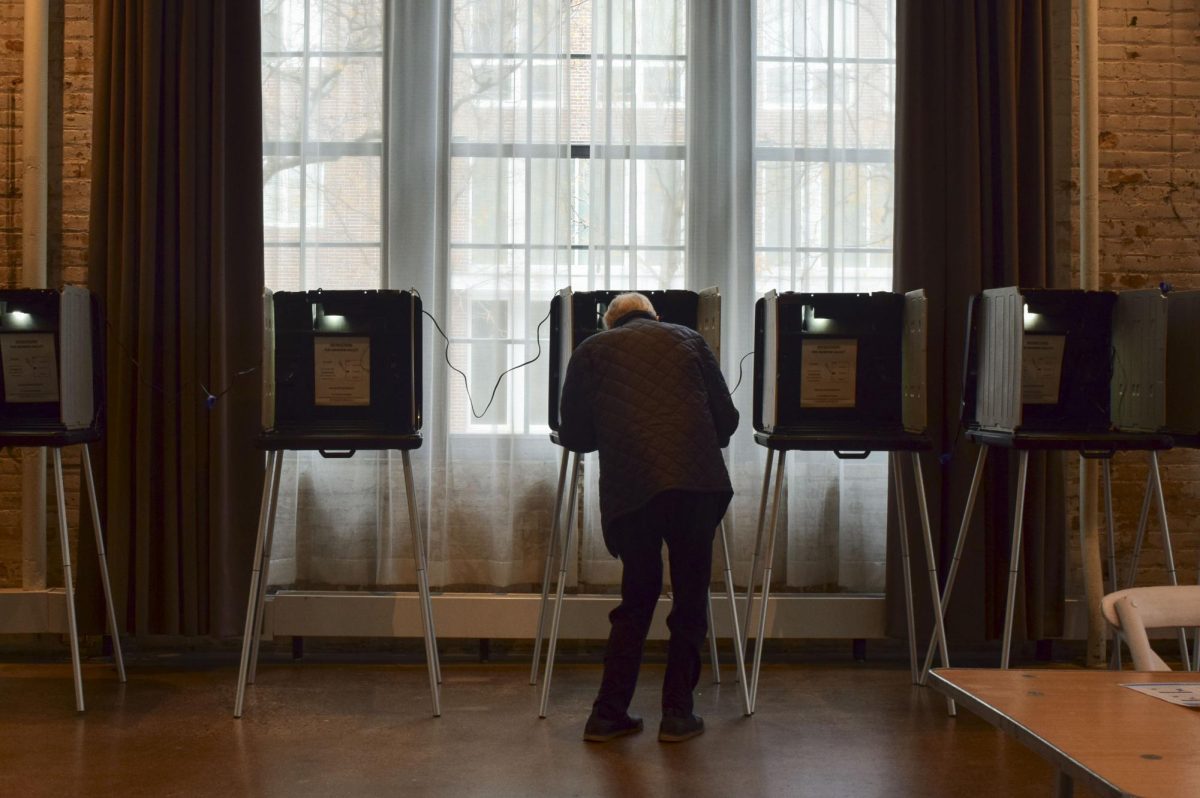University of Minnesota students had different opinions on who to vote for on the Democratic ballot during the state primary election on March 5.
Although current President Joe Biden received a majority of Democratic votes, as well as the most votes in Minnesota over Republican nominee Donald Trump, there was a significant percentage of people, 18.8%, who voted “uncommitted” on the ballot.
Voting uncommitted, or showing no preference for a specific candidate, began as a movement by activists to show disapproval toward Biden’s handling of Israel’s genocide, in the views of uncommitted voters, of the Gaza Strip.
Brandon Price, a fourth-year political science student at the University, said he would have voted uncommitted in the state primary but could not do so since the primary fell during spring break.
“I think that voting uncommitted is going to have the strongest message,” Price said. “In the past, if someone didn’t get voted for in the primary, they could say, ‘Oh, they liked my competitor better,’ but this one is showing discontent with the way things are going.”
Price said he would have voted uncommitted due to Biden’s support of the Israeli government’s actions in Gaza.
“I think the United States has taken on the role of the global policeman,” Price said. “I think we could be doing better and could be putting more pressure on Israel to end the genocide going on.”
Since the primary fell over spring break, Price said it was difficult to vote for many students because they were out of town.
“I think having the day off to vote is important, but I think having it lining up with spring break isn’t necessarily the best idea,” Price said.
Benicio Mendiola-Johnson, a fourth-year political science student at the University, voted for Biden during the primary because of the bills he passed, which focused on climate, inflation, gun reform and infrastructure.
Mendiola-Johnson said he wished Biden did more to handle issues such as immigration but hoped more will get done if Biden gets reelected.
“If the Democrats can win the Senate and the House and Biden wins, they can maybe get more of what I want,” Mendiola-Johnson said.
He said he understands the outrage surrounding Biden’s handling of the conflict between Israel and Palestine but thinks voting uncommitted makes Biden look like a weaker candidate compared to Trump.
“Many of those people who support Palestine are also very big on the climate,” Mendiola-Johnson said. “Joe Biden signed the most pro-climate bill in the history of our country, and people are going to throw it away over Palestine.”
With the national election approaching in November, the University’s Undergraduate Student Government (USG) hopes to encourage students to vote through their Row the Vote campaign and other outreach initiatives.
Joslyn Blass, the interim director of Government and Legislative Affairs for USG, said this year is a big election year globally, with more than half of the world’s adult population planning to vote in an election.
“Historically, the University of Minnesota has been really successful in increasing the amount of voter turnout for college-age students,” Blass said. “One of the biggest priorities we’re working on is establishing our concrete plan for how we can be most helpful for students in the fall for getting them educated on how to vote.”
Many of their initiatives will take place in the fall, as USG is focused on their campus elections to elect new student government representatives.
Voting for the campus elections will happen from March 18 to 22. Students will learn the election results on March 27, according to Blass.
“We’re trying to make people aware that these people who get elected into these positions serve with the understanding that they are representing either the student body or their specific college,” Blass said of the campus election.








